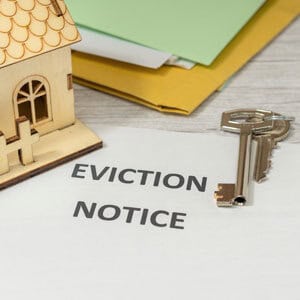
Did The CDC Eviction Moratorium Expire In August 2021 As It Was Set To?
The eviction moratorium has not expired. The CDC director, Dr. Rochelle Walensky signed an order dated August 3, 2021, determining that eviction of tenants for failure to pay rent or housing payments could be detrimental to public health control measures to slow the spread of SARS COV-2, the virus that causes COVID-19. That order expires on October 3, 2021, and applies to United States counties experiencing substantial and high levels of community transmission levels of SARS COV-2.
What that means is that the moratorium is not everywhere. In some counties around this country, those that have lower amounts of transmission of this virus, landlords may be able to evict tenants at this time. But in areas like Florida and Texas (at least in parts of those states), they will probably have this moratorium in place till October 3, at the very least (the order could be extended).
I know there have been some legal challenges to this that are currently in the courts. Some are arguing that this moratorium is unconstitutional. It will be interesting to see how those cases play out.
Was The Moratorium Applied Across The Country Or Only In Certain States?
There were a number of measures taken. Some states like Maryland had their own moratorium at some point in time; ours expired a while back and was not extended, but the federal government also put in a moratorium that has been extended four or five times now. The most recent extension expired on July 31 of this year and has not been extended to date. So, there is some push to do that, but the Biden Administration was pretty clear that this was going to be the final extension. Right now, foreclosures are able to be filed and continued by most lenders. Some lenders were even able to initiate and continue foreclosure proceedings despite the moratorium because it only really applied to mortgages backed by certain entities like HUD, VA, USDA, Fannie and Freddie Mae, etc. and not to private loans. Some foreclosures have continued on vacant properties with no one living there.
Nevertheless, for the most part, this has put the brakes on foreclosures. As a bankruptcy attorney, the number of cases that we file to stop and work out foreclosures has dropped dramatically over the past year and a half of this pandemic. The government has been trying to urge lenders to do forbearance plans with people, and they’ve given until September 30 of this year for folks to apply for as many as three more months of forbearance.
The current qualifications for forbearance are pretty lenient at the moment. Essentially, if you reach out to your lender before September 30 of this year, you should be able to get a forbearance or an extension of the time that you have to pay for those months. You may even be able to get an extension on the preceding months, depending on what you’ve been given assistance-wise prior to asking. But again, that doesn’t apply to all loans. It remains to be seen what’s going to happen with the forbearance plans. A lot of people are putting their mortgage on pause, and during that pause, the interest and payments are not being made, meaning they’re building up a big balance.
The problem is that when a forbearance plan ends, the default is that you have to pay the amount back that you didn’t pay. If you have a three-month forbearance on a payment of $2,000 a month, when your three months go by, you owe them $2000 times three, or $6,000, plus the interest, in addition to your future payments. Let’s say that your forbearance plan ended in August. In September, you would owe for June, July, and August, plus September and then October and then November. Most people won’t be able to come up with the extra $6,000 from my example.
So, what the federal government is trying to do is urge these lenders to offer other assistance to people. They’ll probably send out forms to apply for things like a loan modification if folks want to keep their homes. If they don’t want to keep their homes, then they’ll be sent information on short sales or deed-in-lieu of foreclosure options. There are a number of ways that these things can be worked out. It does pay for you to talk to an attorney about which option is best because it is very situation-specific. If you don’t act quickly and in the right manner, you could miss the boat.
For more information on Expiry of CDC Eviction Moratorium, an initial consultation is your next best step. Get the information and legal answers you are seeking by calling (443) 492-9003 today.
We Are Here To Help.
Call Today For An Evaluation:
(443) 492-9003